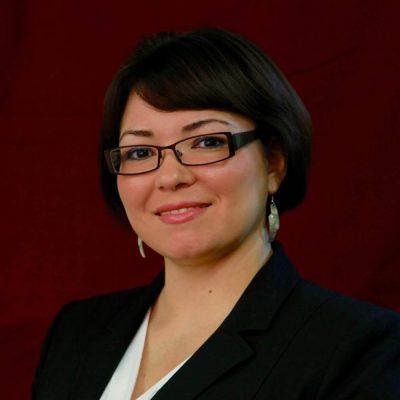
Director of the Indigenous Leadership Program
Mount Denali on a late September day. Photo credit: Patrick Federi
In addition to the briefing recording below, you will find a range of supplemental resources to deepen your understanding of Alaska Native communities and the Alaska Native Claims Settlement Act.
Wednesday, February 16, 2022
In all of Native American affairs in the United States, the relationship between Alaska Native communities and the federal government is one of the least understood by the mainstream. The passage of the Alaska Native Claims Settlement Act of 1971 (ANCSA) created a new structure and relationships, distinct from the reservation system of the Lower 48. In this briefing, Joe Nelson (Tlingit) will discuss the situation leading up to the passage of the ANCSA, the structures it created, and how Alaska Native leaders responded. Then, Nicole Borromeo (Athabaskan) will describe the contemporary landscape of ANCSA and considerations for the future.
“
I more clearly understand history of Alaska Natives and their rights now. I was impressed with both the speakers and appreciate topics that make me think more deeply about Tribal sovereignty over time.
— ANSCA Briefing attendee
Download a transcript of commentary from our panelists.
video
KTOO, February 2020 (1:08:54)
Website
Website
Website
Website
Please learn more about and consider financially supporting these Native-led nonprofits our speakers champion:
Anchorage, AK
Anchorage, AK
Juneau, AK
Juneau, AK
Juneau, AK

Nicole Borromeo is the executive vice president and general counsel of the Alaska Federation of Natives. AFN’s membership includes 168 federally recognized tribes, 166 village corporations, 8 regional corporations, and 12 regional nonprofit and tribal consortiums that contract and compact to run federal and state programs. Ms. Borromeo received her law degree from University of Washington School of Law and is a Doyon shareholder.

Joe Nelson is the current board chair of Sealaska, a for-profit Alaska Native corporation owned by more than 23,000 Tlingit, Haida, and Tsimshian shareholders. A former commercial fisherman and an attorney by profession, Mr. Nelson works with Sealaska’s leadership and stakeholders to strengthen Alaska Native communities, culture, and land. Mr. Nelson also serves as the co-chair of the Alaska Federation of Natives (AFN), the largest statewide Native organization working to enhance and promote the cultural, economic, and political voice of the Alaska Native community.

Blog
Recordings and resources from the first of four virtual briefings about Indigenous leadership with Bobbie Conner and Ron Allen presenting.

Blog
Recordings and resources from the second of four virtual briefings on Indigenous Leadership.

Blog
Recordings and resources for the final of four virtual briefings on Indigenous Leadership with Dave Tovey and Robert Miller presenting.